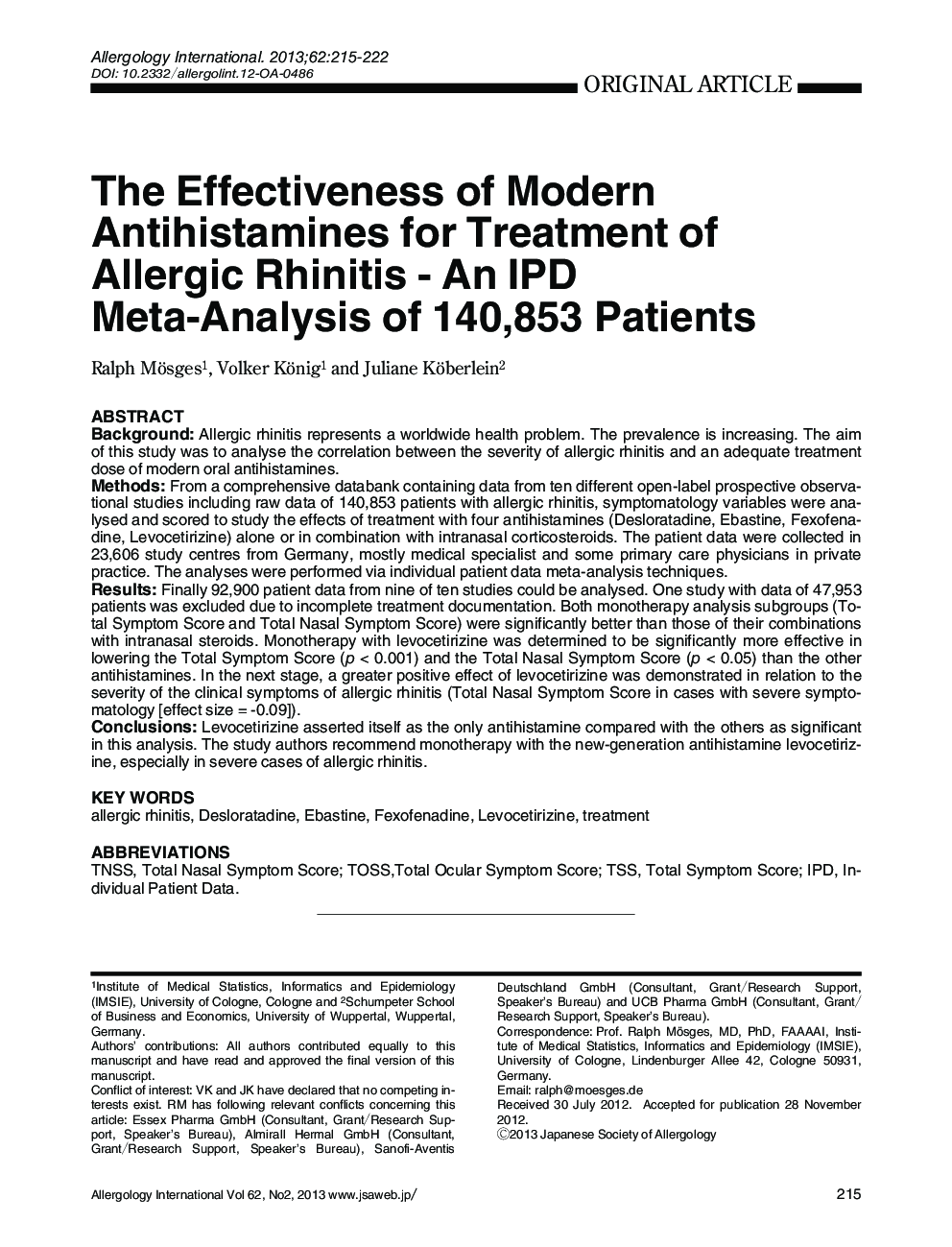| Article ID | Journal | Published Year | Pages | File Type |
|---|---|---|---|---|
| 3340839 | Allergology International | 2013 | 8 Pages |
ABSTRACTBackgroundAllergic rhinitis represents a worldwide health problem. The prevalence is increasing. The aim of this study was to analyse the correlation between the severity of allergic rhinitis and an adequate treatment dose of modern oral antihistamines.MethodsFrom a comprehensive databank containing data from ten different open-label prospective observational studies including raw data of 140,853 patients with allergic rhinitis, symptomatology variables were analysed and scored to study the effects of treatment with four antihistamines (Desloratadine, Ebastine, Fexofenadine, Levocetirizine) alone or in combination with intranasal corticosteroids. The patient data were collected in 23,606 study centres from Germany, mostly medical specialist and some primary care physicians in private practice. The analyses were performed via individual patient data meta-analysis techniques.ResultsFinally 92,900 patient data from nine of ten studies could be analysed. One study with data of 47,953 patients was excluded due to incomplete treatment documentation. Both monotherapy analysis subgroups (Total Symptom Score and Total Nasal Symptom Score) were significantly better than those of their combinations with intranasal steroids. Monotherapy with levocetirizine was determined to be significantly more effective in lowering the Total Symptom Score (p < 0.001) and the Total Nasal Symptom Score (p < 0.05) than the other antihistamines. In the next stage, a greater positive effect of levocetirizine was demonstrated in relation to the severity of the clinical symptoms of allergic rhinitis (Total Nasal Symptom Score in cases with severe symptomatology [effect size = − 0.09]).ConclusionsLevocetirizine asserted itself as the only antihistamine compared with the others as significant in this analysis. The study authors recommend monotherapy with the new-generation antihistamine levocetirizine, especially in severe cases of allergic rhinitis.
